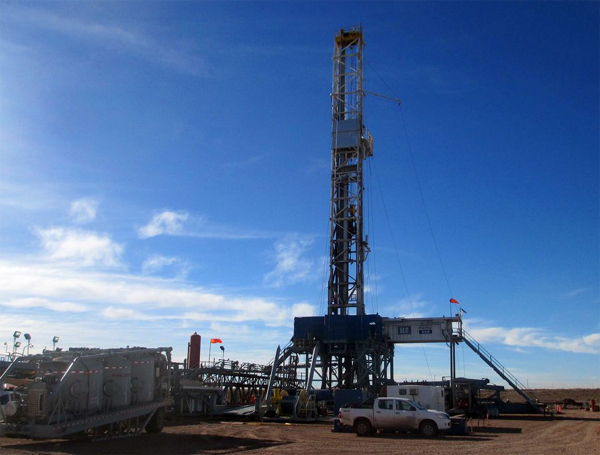
own by Argentina’s state-controlled energy company YPF, in the Patagonian province
of Neuquen, Argentina June 22, 2017. Picture taken June 22, 2017. Juliana Castilla/Reuters
By John Kemp/Reuters
LONDON
EnergiesNet.com 01 10 2022
| Oil markets attracted a new wave of interest from investors at the end of 2021 and start of 2022, as the threat of widespread economic and aviation disruption from Omicron seemed to recede. Hedge funds and other money managers purchased the equivalent of 31 million barrels in the six most important petroleum-related futures and options contracts in the week to Jan. 4. Portfolio managers have purchased a total of 102 million barrels in the three most recent weeks, after selling 327 million barrels in the previous 10 weeks See graphs:(https://tmsnrt.rs/3f5QZ5B). In the most recent week, most of the buying came from the creation of new bullish long positions (+27 million barrels) rather than closure of old bearish short ones (-5 million). Bullish long positions now outnumber bearish short ones by a ratio of 5.18:1 (in the 67th percentile for all weeks since 2013) up from 3.83:1 (47th percentile) on Dec. 14. Last week’s buying was broadly based, with purchases in Brent (+19 million barrels), U.S. gasoline (+7 million), U.S. diesel (+4 million) and European gas oil (+3 million), with sales only in NYMEX and ICE WTI (-2 million). The number of confirmed coronavirus infections per day worldwide has almost quadrupled to 308 per million in the seven days ending on Jan. 10 up from 78 per million on the seven days ending Dec. 14. But the link between confirmed cases, hospitalisations and deaths appears to have weakened, with the result many governments are imposing more limited restrictions on business activity and travel than in previous waves. The more limited response to this latest wave of the pandemic has encouraged bulls in their view that the impact on oil consumption will be relatively limited and short duration. As the current wave of infections fades in the spring, the continued cyclical upturn in the global economy is expected to result in further growth in oil consumption from the second quarter onwards. Coupled with limited production growth from OPEC, its allies, and U.S. shale producers, global petroleum inventories are likely to tighten further by the end of 2022. Hedge fund oil buyers are anticipating, accelerating and amplifying the move to an even tighter market by the end of this year. In consequence, front-month Brent futures prices have rebounded to within $5 per barrel of their previous cyclical highs in October 2021 and October 2018, and the gap is even closer if inflation is taken into account. Brent’s six-month calendar spread has tightened into a backwardation of around $3.80 per barrel (93rd percentile for all trading days since 1990) up from $1.54 (67th percentile) in the middle of December. |
| John Kemp Senior Market Analyst from Reuters. (Editing by David Evans) Twitter: @JKempEnergy Phone: +44 7789 483 325 |




